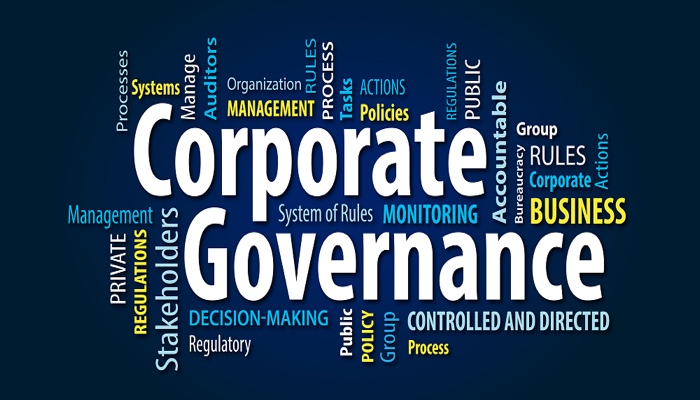The Defination of Corporate Governace;
The combination of management rules, process and laws by which businesses are operated, regulated or controlled is called corporate governance.
Corporate governance is like a compass through which a company may define the internal and external factors that affect the interest of any organization’s stakeholders; including owners or shareholders, board of directors or top management, customers or consumers, government regulators and trade unions.
The board of directors (top management for any other company) is responsible for creating the framework for corporate governance that best aligns business conduct with objectives. In depth its mission, vision and goal.
Action planning, performance measurement, disclosures for reconciling conflicts, executive compensation decisions, forecasting, disaster recovery planning, dividend policies, procedures for reconciling conflicts of interest, and explicit or implicit contracts between the company and its all stakeholders may be noted as some specific process that can be outlined in corporate governance.
When good corporate governance is performed, the company must follow a well structured working flow, enterprise adheres to accepted ethical standards and they ensure practice and formal laws.
Alternatively, bad corporate governance is seen as poorly-structured, ambiguous and noncompliant, which could damage the image or financial health of a business.
Corporate governance and its common principles;
When we found most of corporate governance structure is difference and unique but still most organizations adapt the following key elements:
- All shareholders should be treated equally and fairly. This also means that shareholders are aware of their rights and how to exercise them.
- Legal, contractual and social obligations to non-shareholder stakeholders must be upheld. This includes always communicating and sharing pertinent information to employees, investors, vendors and members of the community.
- Must maintain a commitment to ensure accountability, fairness, diversity and transparency within corporate governance. Board members must also possess the adequate skills necessary to review management practices.
- Organizations should define a code of conduct for board members and executives, only appointing new individuals if they meet that standard.
- All corporate governance policies and procedures should be transparent or disclosed to relevant stakeholders.
- Ensure business success and growth by choosing the right strategy.
More details about principes please click here.
Conflict management in corporate governance:
One of the most common conflicts that corporate governance is facing is the agency problem. The agency problem is a conflict of interest that occurs when agents do not fully represent the best interests of principals or shareholders or owners. Principals hire agents to represent their interests and act on their behalf. [In the business world, this relationship is represented by a company’s management team and the corporation’s shareholders. In other cases, the agent is the head of an investment firm while investors are the principals.
Conflicts could occur when executives disagree with shareholders. For example, the shareholders will typically want to solely pursue interests that generate profit while the chief executive officer might want to invest in better employee engagement efforts.
Another type of conflict could arise if multiple shareholders disagree with each other. It would be the role of corporate governance to define how these matters are settled.
Regulation of corporate governance:
Corporate governance has received increased attention because of high-profile scandals involving abuse of corporate power or alleged criminal activity by corporate officers. Therefore, laws and regulations have been passed to address the components of corporate governance. But only few can be found here in Bangladesh. However the following act or regulation is commonly found here in Bangladesh.
- Basel II: This is a business standard that minimizes the financial effect of risky operational decisions. The rights of shareholders are covered under this standard, thus affecting corporate governance.
Enron and WorldCom; Example of misuse of corporate governance:
Public and government concern about corporate governance tends to wax and wane. Often, however, highly publicized revelations of corporate malfeasance revive interest in the subject. For example, corporate governance became a pressing issue in the United States at the turn of the 21st century, after fraudulent practices bankrupted high-profile companies such as Enron and WorldCom.
The problem with Enron was that its board of directors waived many rules related to conflicts of interest by allowing the chief financial officer (CFO), Andrew Fastow, to create independent, private partnerships to do business with Enron. What actually happened was that these private partnerships were used to hide Enron’s debts and liabilities, which would have reduced the company’s profits significantly.
What happened at Enron was clearly a lack of corporate governance that should have prevented the creation of these entities that hid the losses. The company also had a corporate atmosphere that had dishonest people at the top (Fastow) down to its traders who made illegal moves in the markets.
Both the Enron and Worldcom scandals resulted in the 2002 passage of the Sarbanes-Oxley Act, which imposed more stringent recordkeeping requirements on companies, along with stiff criminal penalties for violating them and other securities laws. The aim was to restore public confidence in public companies and how they operate.
